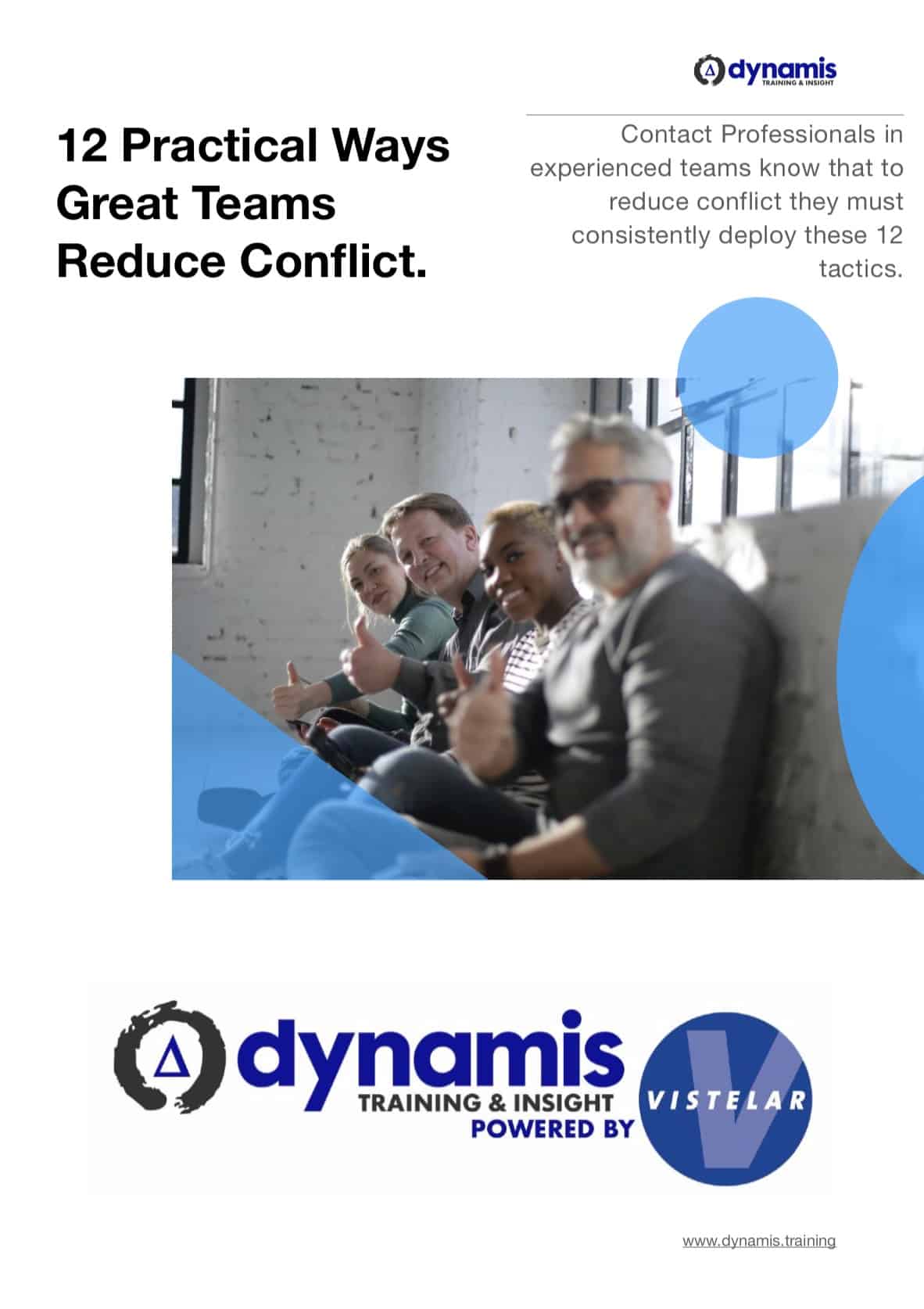A group of NHS Highland trainers have been applying Dynamis’ scenario-driven approach to their PMVA training since 2022 and have experienced some startling results, with one cohort reporting a 72% uplift in confidence about safely breaking away from violent contact.
The NHS Highland team reported their experiences at an update to the GSA membership’s annual conference in Newcastle, alongside Dynamis’ Director of Training Gerard O’Dea and Professor Chris Cushion from Loughborough University.
Here, we reflect on the merits of the scenario-driven approach and offer insights to teams who are striving for more efficient, engaging and effective PMVA training for their people.
Why should the scenario-driven approach be integrated into PMVA Training?
The NHS Highland team had noticed that much training in conflict and physical interventions was de-contextualised, linear and skill-based, as well as being low-pressure and predictable. This was in contrast to real life operations on wards and communities, where situations were often pressured, chaotic, intense and surprising. They needed their training to result in more effective transfer of desired behaviours into the workplace and increased staff confidence.
They also noticed their people were becoming jaded with trainer development: it was the “same old thing, year-on-year”, with dry legal updates and the practice of static training as per the classroom model. They needed an approach that engaged learners and ensured efficient transfer of knowledge and skills.
To build better PMVA training, the team hosted SCENA Instructor Development CPD courses in 2020 and 2022 with Dynamis Training and have been building effective programme designs with the Scenario-Driven Approach ever since.
How do training teams integrate the scenario-driven approach into PMVA programmes?
Leveraging the evidence base about “performance versus learning” and understanding that high repetitions are required to properly embed the target skills in any training, the NHS Highland team transformed the way they were delivering their PMVA training programme.
Here’s a more detailed look into how they did it:
1. Ask the right questions and engage from every angle
To get a handle on the problem and shape an efficient, effective pathway towards scenario-driven training, the team spent time engaging with questions such as:
- What are the ‘core’ conflict and intervention scenarios experienced in our services?
- What changes will we need to be made to our training plans?
- What considerations need to be made for our training environment/rooms to enable scenario-based training (SBT)?
- How will our trainers upskill to be able to deliver in a scenario-driven way?
- What adaptations will we need to make to our course paperwork?
- How will we, at all stages, consider the learning needs of our people and articulate the benefit of the changes we are making?
Through discussion, debate and formulating their answers they created a route-map to training transformation in which everyone was invested.
2. Invest time and resources on the training planning and design
This stage took a considerable amount of time, but was worth the investment. The team made a number of important changes, which included:
- Reviewing the ordering and sequencing of practice activities that were to be incorporated into the training design. The training plan was re-engineered along research-informed and evidence-based lines and plans were made to caplitalise on the prior experiences and professional ability of learners.
- Increasing the complexity and risk level in the planned scenarios through a continuum of behavioural, environmental, staffing and task changes, which progressed on a gradient of intensity.
- Creating a series of ‘patient role player briefings’ which gave life to the scenarios and specific direction to the role players – these in turn uncovered the need for specific skills, understanding or decision-making.
- Careful placement of the appropriate GSA breakaway and GSA holding skills* which would be needed in different situations, but with differently presenting patients in a variety of operational contexts to reflect real-life.
3. Ensure the assessment process reflects the scenario-driven model
The NHS Highland team embraced ‘assessment for learning’ by creating a new format for assessments. These allowed for the fact that most practice would occur and be observed (and therefore assessed) in-scenario, throughout a training session, rather than at a specific end-point assessment.
The assessments documented specific actions during the different practice activities, making some predictions about common pitfalls in technique, decision-making or lawful use of force, for example, and being specific about how the instructor/tutor was to coach learners through those moments.
4. Make sure the training environment is rich in prompts to support learning
To support the in-scenario training, practice activities and feedback delivery, the team selected a number of core components of the curriculum to present on printed materials (posters and cards) to create a persistent presence in the training room, underlining their importance.
5. Choose a phased rollout of the scenario-driven approach: focus on refresher days first and then build to longer, more complex training courses
The NHS Highland team started to roll out the scenario-driven approach with their Mental Health Refresher programme, an annual update for learners who have already completed a multi-day course in PMVA specific to mental health units.
Transforming a shorter-duration course with their new skills and structure gave them the confidence and the impetus to quickly spread the rollout to other programmes, including a 4-day Mental Health PMVA programme.
What were the results of incorporating the scenario-driven approach into PMVA training?
Initial feedback on the question “What impressed you or interested you the most?” from participants across the programmes emphasised the following:
- “scenarios have been very helpful”;
- “training is so much better”;
- “realistic”;
- “course is more interactive”;
- “specific to our needs.”
Initial course evaluations, which measured the self-reported pre- and post-course confidence levels of learners in their ability to safely de-escalate situations, use breakaway techniques or to apply restraint holds as a last resort, showed significantly positive responses.
For example:
- one cohort expressed a 46% uplift in confidence to safely de-escalate situations;
- the same cohort expressed a 72% uplift in confidence regarding safely breaking away from violent contact;
- the Mental Health cohort showed a 48% uplift in confidence to safely apply restraint as a last resort.
Feedback and evaluations like this represent a significant message of hope for trainers in NHS trusts around the country who may feel the impact and effect of their own training programmes is suffering because of a stagnant or rigid delivery medium.
If your organisation wants to experience the benefits of a scenario-driven approach and the specific evidence-based, research-informed methodology taught on the SCENA Instructor CPD* course, contact Dynamis today. We will work with you to create efficient, effective and engaging PMVA training which benefits your people and looks after your service users.
*(Note: SCENA as a trainer CPD/upskill programme is technique/system-agnostic. Trainers continue to use the techniques and tactics which their risk-assessments and certification allows for.)


